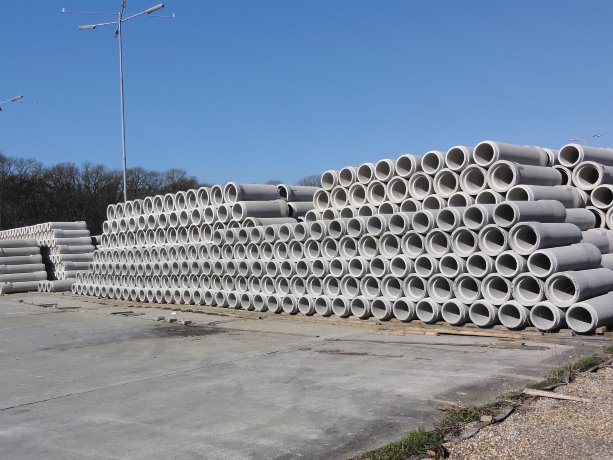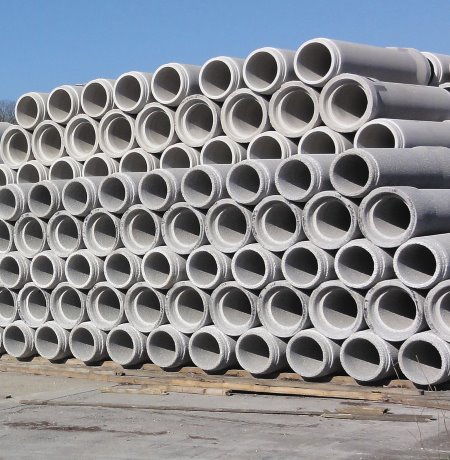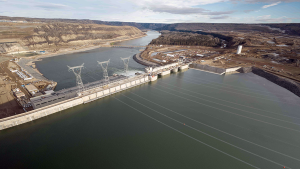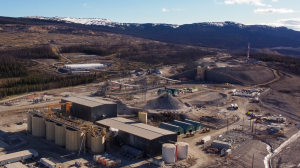A PhD student in the University of BC’s Civil Engineering Department has developed a coating material that she says extends the life span of concrete pipes that have been damaged by biodeterioration.
"The coating has been successfully tested in a pilot program," said Negar Roghanian.
"The next step is to test it in the field and I’m looking for somewhere I can run a trial."
Biodeterioration is caused by bacteria in the water or waste water the pipes are carrying.
The problems caused by the biodeterioration of concrete pipes are serious and can impact not only water and sewer pipes, but also oil and gas pipelines.
Thousands of kilometres of concrete pipes must be removed and replaced every year because they suffer from bacterial-induced corrosion.
The corrosion is caused mainly by aggressive solutions which produce sulfuric acid that penetrates and attacks the concrete.
"The acid, which is harmless to humans, eats away at the concrete and makes it soft," said Roghanian.
"It dissolves the cementitious material and weakens the concrete, which leads to structural problems in the pipe. The corrosion can cause the pipes, eventually, to collapse."
Roghanian says the process of concrete biodeterioration is corrosion by stealth.
"It’s a slow and gradual process that takes place over years," she said. "But it is serious because a small amount of yearly corrosion can lead to a huge failure."
Most concrete pipes in Canada are designed to last 50-60 years.
"Many of them are at or over their design life, and they need to be repaired or replaced," said Roghanian.
"If they’re not dealt with, and a structural failure takes place, it could lead to the pollution of the land and aquatic environments."
There are already on the market coatings to protect against microbiologically influenced concrete corrosion.
"But the pipe coatings that have been tried until now have been deficient," Roghanian said.
"They don’t adhere well, they have a short life span, they’re expensive and some could become toxic."
After four years of research, Roghanian says she has developed a proprietary composite coating that greatly reduces the risk of pipe failure.
She says it not only prevents concrete bio-corrosion, it is also sustainable, energy-efficient and corrosion-resistant.
Roghanian’s next step is to field-test the coating, and then to turn it into a commercial product "within a few years."
Her investigations have been taking place within a network of national and international research groups that were formed recently to apply science to finding solutions to real-world problems.
Roghanian is part of the SIERA group (Sustainable InfrastructurE ReseArch), which was founded in 2015 as part of UBC’s Department of Civil Engineering.
According to Dr. Nemy Banthia, who is the director of SIERA, the group combines civil engineering theory with hands-on experience in the lab and field.
SIERA investigates all kinds of construction materials and tests their chemical, physical, mechanical and behavioural properties.
Banthia says SIERA has 13 research projects in sustainable infrastructure on the go at the moment.
SIERA is funded in part by another research group called IC-IMPACTS, which stands for India-Canada Centre for Innovative Multidisciplinary Partnerships to Accelerate Community Transformation and Sustainability. IC-IMPACTS is the first — and, so far, the only — Canada-India Research Centre of Excellence that is part of the Canadian Networks of Centres of Excellence.
IC-IMPACTS brings together researchers, industry, government and community organizations in India and Canada to find solutions to quality-of-life challenges that affect millions of people in both countries.
In Canada, IC-IMPACTS is comprised of UBC, the University of Alberta and the University of Toronto.

The life span of concrete pipes, such as these pictured above, can be severly impacted by biodeterioration which is caused by bacteria in the water or waste water the pipes carry and also in oil and gas pipelines.
Photo: Havang/Wikimedia Commons"










Recent Comments
comments for this post are closed